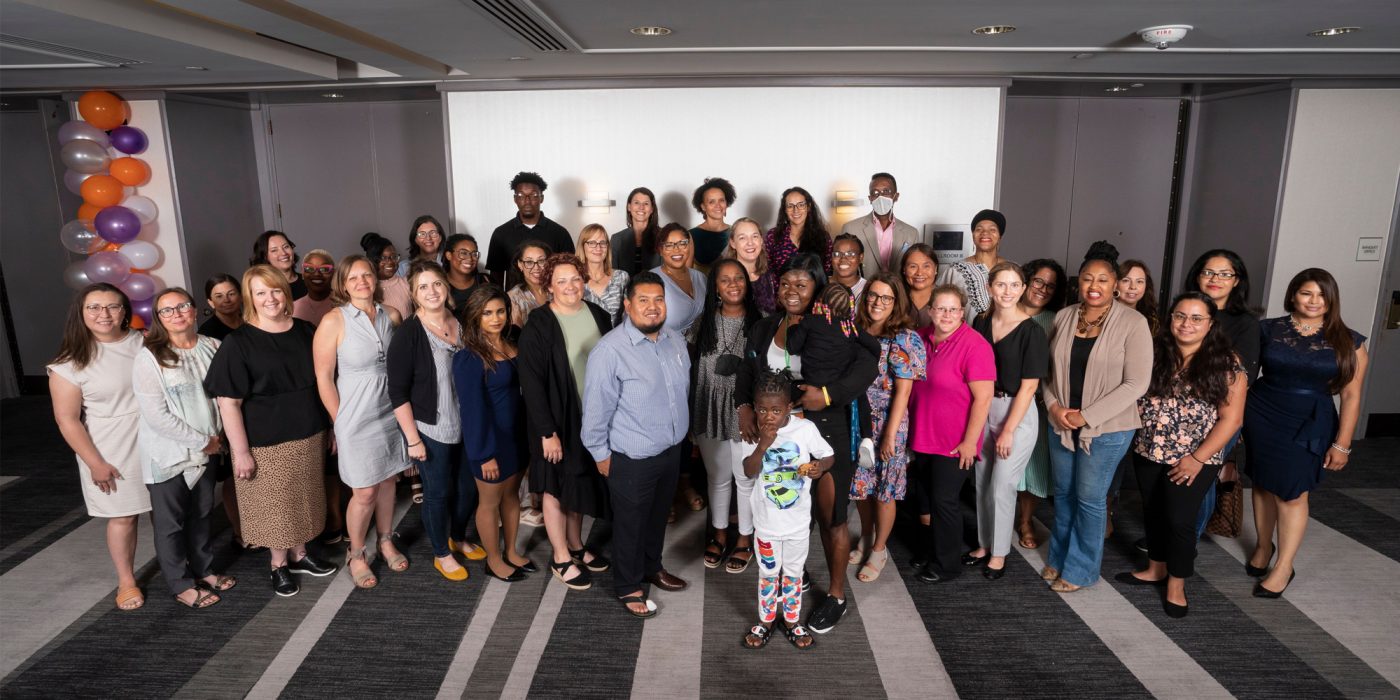Child Care NEXT, a new initiative of the Alliance for Early Success, supports diverse coalitions in states “ready to mount long-term campaigns to achieve transformative change in their child care policies and funding.” It grew out of calls for more ambitious and equitable advocacy that emerged from the devastation that the pandemic brought to the early care and education system. As Albert Wat, senior policy director with the Alliance, explains, “In order to create and sustain bold policy changes, we recognized we needed to invest in campaigns that combine the power that comes from traditional advocates and other policy and research organizations, with the power that comes from grassroots organizers and the leadership of those who are most impacted, but often left out of the decision-making process.”
Currently, Child Care NEXT funds six state coalitions committed to advancing racial equity, centering experiences, building shared power and pursuing transformative change. I had the honor of attending the inaugural summit and meeting tireless, fearless advocates from five of the six state coalitions selected for the first round. A bit later, I caught up with the sixth advocate via Zoom.
Inclusive Louisiana
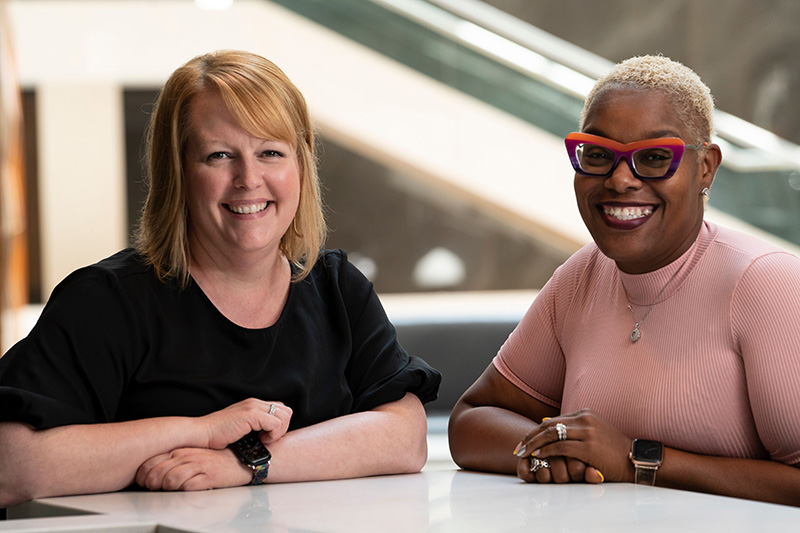
Libbie Sonnier and Rochelle Wilcox are co-chairs of Geaux Far (pronounced Go Far) Louisiana, a coalition that centers the voices of early childhood providers as well as parents. Their partnership—Sonnier leads the Louisiana Policy Institute for Children, Wilcox runs Wilcox Academy of Early Learning and cofounded For Providers, By Providers—exemplifies the balance of voices that powers change in their state.
“We’re here to make sure early learning looks more inclusive,” said Wilcox. “That means every stakeholder having a seat at the table. They’re not just tokens.”
“We’ve come a long way,” reflected Sonnier, pointing to how they’ve called attention to the importance of perinatal and maternal health and well-being.
Wilcox emphasized factors beyond home and school. “Addressing the whole child means addressing the ecosystem,” she said. “Housing, the environment, everything.”
Although Louisiana has a long history of fiscal conservatism, Wilcox and Sonnier pointed to $84 million in new spending at the state level as well as a voter-approved early childhood tax measure in New Orleans (read more) as evidence that elected officials can and will make needed investments if held to account. “When you make the business case for early care and education, it becomes a nonpartisan issue,” said Sonnier.
Sonnier and Wilcox cited a custom among the Masai tribe of Africa. Instead of greeting each other with, “How are you?” they say, “Kassaerian Engeri?” which means, “And how are the children?” The expected response: All the children are well.
Putting the Mind in ‘A New York State of Mind’
When I caught up with Janna Rodriguez of the Empire State Campaign for Child Care, she had just come from a Capitol Hill meeting with the staff of Senator Chuck Schumer. Although she was disappointed to learn that Congress wouldn’t be increasing funds for early education through budget reconciliation, she remained focused on the positive. “It didn’t get done right now,” she said, “but it’s a topic of conversation. That will make it easier the next time around.”
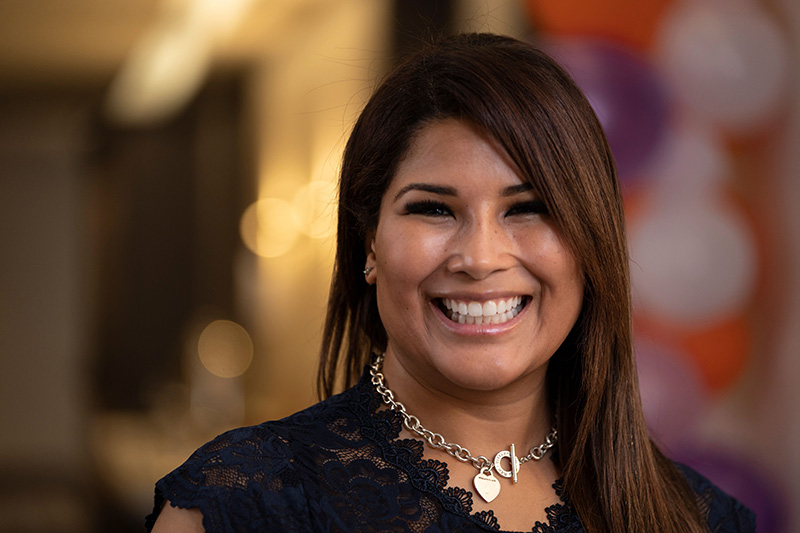
Born in the Dominican Republic, Rodriguez grew up in a single-parent household and was the first in her family to attend college. Today she is an entrepreneur. As owner of Innovative Daycare Corp in Freeport, New York, she strives to serve families with similar backgrounds in a “space that inspires children.”
👉Read more in this EdSurge article written by Rodriguez: Congress Bailed Out the Airline Industry. Why Won’t It Do the Same for Child Care?
For Rodriguez, it’s a fundamentally American principle: If we want children from diverse backgrounds to grow up and become entrepreneurs and business leaders, we can’t wait until kindergarten to start their education. “Zero to five is when it all starts,” she asserted. Furthermore, child care holds the key to other pivotal issues that affect the whole country—immigration, housing and workforce—to name just a few.
👉 Janna Rodriguez: A Champion of Change (CDA Council)
This year’s federal budget isn’t Rodriguez’s main focus. She’s in this for the long haul. “We’re going to be so proud in 20 years,” she promised. “That’s why I wake up with a smile on my face.”
Being Undeniable in Virginia
“Our mission is to ensure that the people who can least afford child care have one choice: the best,” said J. Glenn Hopkins, who has led Northern Virginia’s Hopkins House since 1991, (For the record, he is unrelated to the nonprofit’s namesake, physician J. Milton Hopkins.) While the region that Hopkins House serves is, for the most part, wealthy, progressive and educated, there are a number of families lower on the economic ladder, and the organization’s three preschool academies educate young children as young as six weeks old from these families. Collaborating with colleges and research institutions keeps its educators on the leading edge of the field.
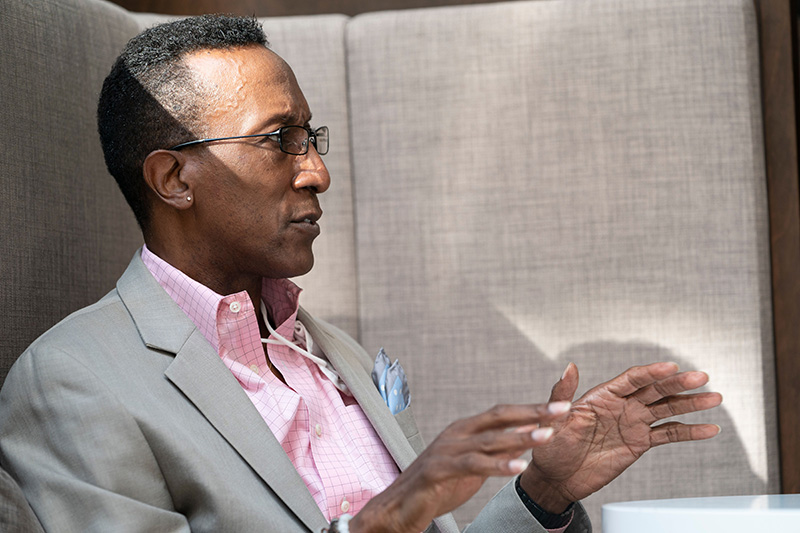
Hopkins is a member of the Virginia Promise Partnership (VPP) Provider Advisory. Launched in December 2020, VPP centers the voices of providers and parents as they work to secure quality, affordable child care for all Virginia families by 2030. Due in part to VPP’s leadership, the latest Virginia budget makes critical investments towards improving access, choice and quality, and sustaining the early care and education workforce.
Hopkins signed up to attend Child Care NEXT to stay abreast of the future of child care in the new political and economic environment. Advocacy figures heavily into the picture. “There’s a big gap between what working parents can afford and what it costs to deliver quality,” he said. “That’s where government support comes in.” Hopkins is looking for new approaches to educating the public and pressuring Congress.
Reflecting on his own trajectory, Hopkins recalled his father, who never went to college, pushing him to apply to Ivy League institutions. “He’d say to me, ‘You have to have options,’ and later in life I’ve come to understand better what he meant.” (Hopkins attended Columbia University.) “Our preschool academies seek to nurture the best in our young scholars: be so good no one can deny you.”
Bipartisan Support in Oregon
Voices like Marchel Marcos’s are often left out of conversations that take place at conferences like Child Care NEXT, but because the Alliance sprang for child care, Marchel was able to bring her six-year-old, Kenji. A single mother and survivor of domestic violence, Marcos now serves as political director for Asian Pacific American Network of Oregon (APANO). She noted that summer, when school is closed, is the hardest time to find someone to watch the children. “That fact that Kenji and I are here,” she said, “shows that the Alliance affirms and validates my experience.”
👉 Read more: Oregon families racked with choosing between ‘rent or childcare’
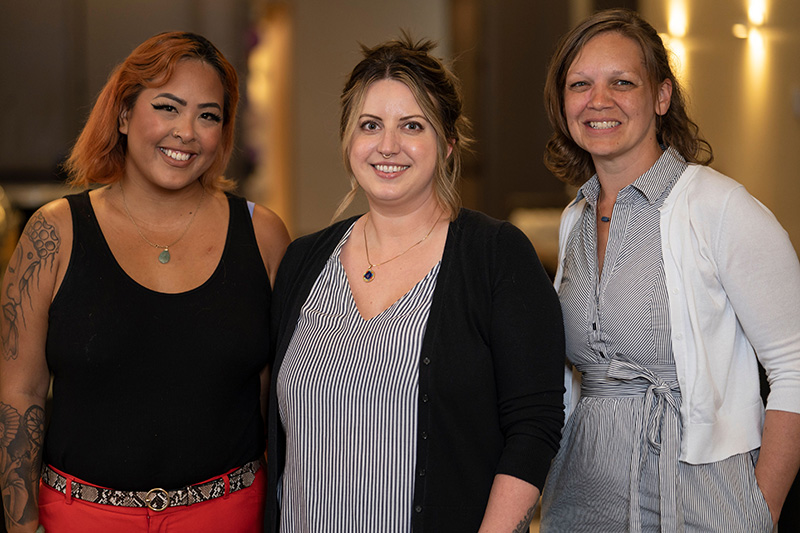
Courtney Helstein of Family Forward Oregon and Dana Hepper of The Children’s Institute were also part of Child Care for Oregon, the state’s delegation at Child Care NEXT. Before we spoke, they had met with staffs of Senators Ron Wyden and Jeff Merkley. According to Helstein, bipartisan support is vital to achieving anything in their state. Representative Suzanne Bonamici has made child care a priority. The imminent retirement of state representatives Karin Power (D) and Jack Zika (R) poses new challenges.
Oregon put $100 million toward child care in 2022. Hepper also described the state’s newly formed Department of Early Learning and Care and increased child care reimbursement rates as major accomplishments. Changes to the subsidy program—including lower copays, expanded eligibility, inclusion of undocumented kids, and payments made according to enrollment rather than attendance (the pandemic showed the urgency of this distinction)—make the state’s program more equitable.
👉 Read more about Oregon’s recent child care policy victories
In Colorado, Advocacy Runs in the Family
Like Oregon, Colorado recently launched a state-level Department of Early Childhood. Lorena Garcia and Melissa Mares are seizing this opportunity to push for sweeping change, co-leading Colorado’s coalition, which is called Growing Our Future: Cultivating Caregiving Communities. Garcia is executive director of Colorado Statewide Parent Coalition, which her father originally founded. (Her mother was the founding executive director of another group, ELPASO Movement—Engaging Latino Parents to Advance Student Outcomes.) Like her parents, Garcia advocates for funding and policies to make education work for all families in her state.
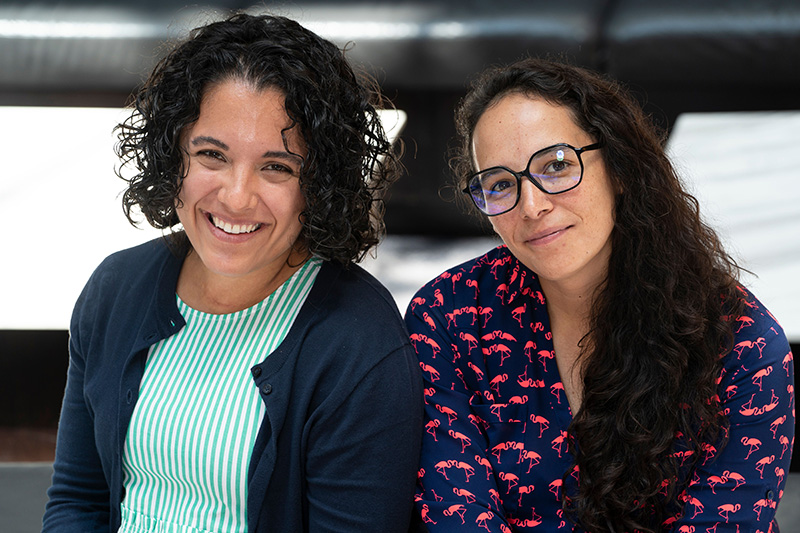
According to Garcia, the pandemic has contributed to an awakening that school readiness efforts must reach as early as possible into children’s lives. “My dad always said, ‘Kindergarten is too late’,” she told me. There’s also been an overdue recognition of the role that family, friend and neighbor (FFN) care plays in the lives of children. “On one hand, status quo stakeholders say they want to close the achievement gap,” Garcia said. “On the other, they’re saying FFN—where 50% of the children are learning and more than 50% of providers work—is unsafe.”
👉 Read more: Bringing Unlicensed Care out of the Shadows
Child Care NEXT’s approach to change resonates for Garcia because it emphasizes how families directly affected by poverty and racism can and do win policy victories.
Mares, director of Early Childhood Initiatives at the Colorado Children’s Campaign, previously taught kindergarten at a Spanish immersion school in Eugene, Ore. “I came to see my job,” she told me, “not as training my students to be successful, compliant adults but as fiercely defending childhood. Let them be kids.”
For a long time, Mares was going against the grain, but researchers and experts are increasingly recognizing that without self-regulation and other social emotional skills, academic learning just doesn’t happen.
👉 From a Nation at Risk, to a Nation at Hope (The Aspen Institute National Commission on Social, Emotional & Academic Development)
Mares’ experience teaching young children also left her with a bad taste in her mouth about how society perceived her work. “People would always talk about how cute kids are, as if that—rather than a living wage—should be the most rewarding aspect of the job. As if it made sense that women would be in a job like that. The disrespect of female labor is deeply entrenched.”
“And you know what?” she told me. “The work of caregiving is critically important. And the kids weren’t always cute.”
A Winning Streak in New Mexico
Shortly after Child Care NEXT, I Zoomed with Matthew Henderson, executive director, OLÉ Education Fund, part of the New Mexico coalition. Last year, Governor Michelle Lujan Grisham announced a plan to make New Mexico the first state in the country to offer free child care to nearly all families. (Read more.) Henderson calls it a bold move from the governor, and says it follows a related victory—formation of the state’s Early Childhood Education & Care Department. Next up: an amendment to the state’s constitution enshrining a dedicated funding source for early childhood programs. A broad network of allies has begun canvassing for the amendment, which will be put to voters in November.
Yet much remains to be done in the Land of Enchantment, says Henderson. Enrollment in Lujan Grisham’s plan is falling short, and the state has lost nearly a thousand early educators since the start of the pandemic. “It’s no wonder that there isn’t enough child care to meet the demand when there’s no job that pays less,” he says.
“Providers are telling us, ‘We went to college for this. We have debt. We’re tired of juggling bills and having the power turned off.’ Some are leaving the sector for public schools. Some are leaving it for fast food jobs.”
He adds, “We need to put an end to this racist system that depends on paying BIPOC women poverty wages.”
The energy coming out of Child Care NEXT encourages Henderson, as do demonstrations like the Day Without Child Care this past May. “You’ll see early educators and parents returning to the streets soon,” he says, “ until policy makers are committed to change.”

Mark Swartz
Mark Swartz writes about efforts to improve early care and education as well as developments in the U.S. care economy. He lives in Maryland.


